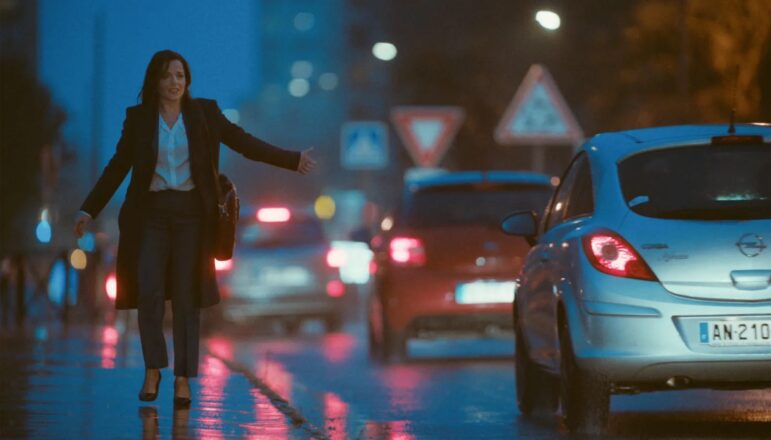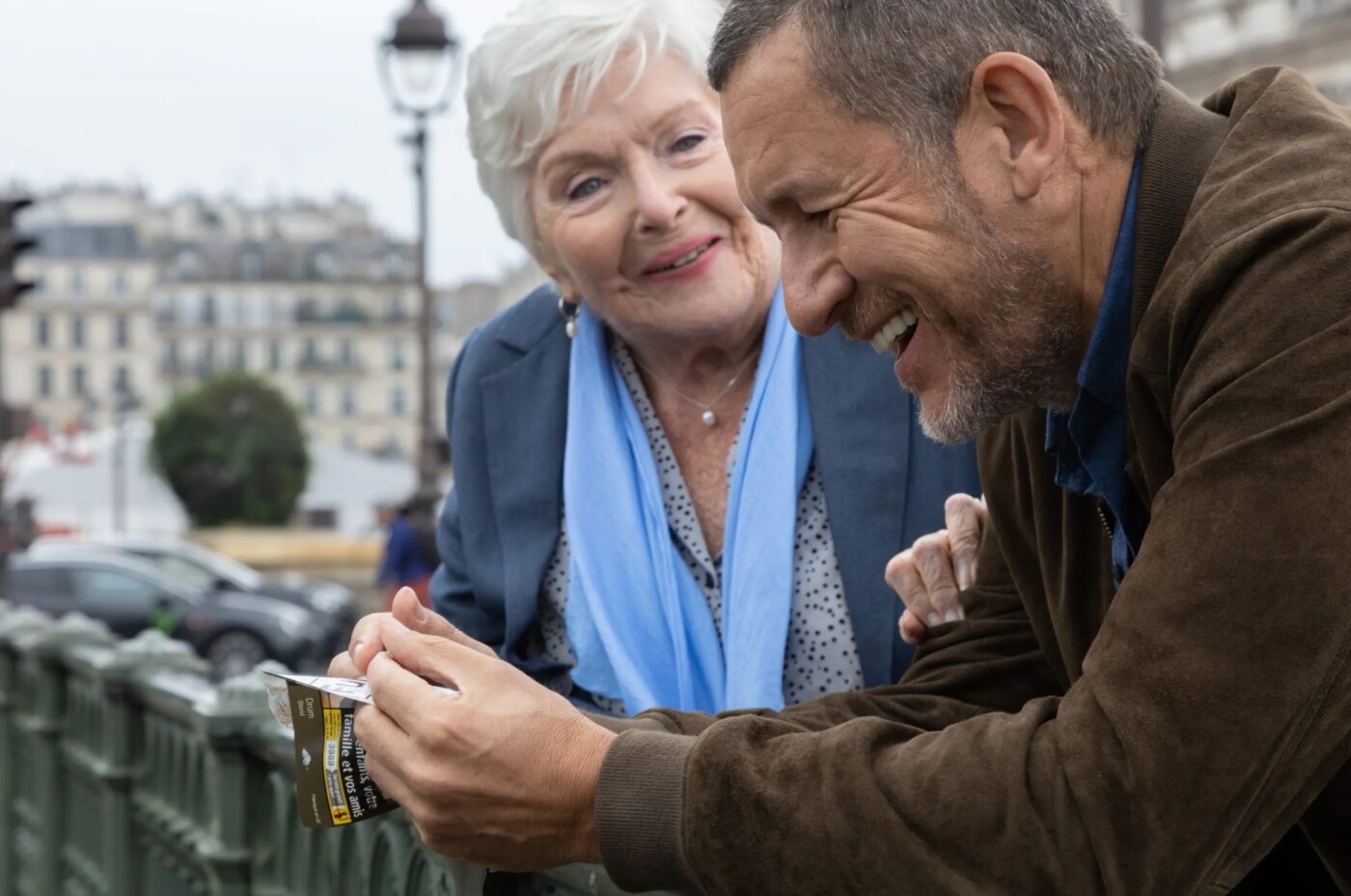It might not receive the same fanfare as some of its Bay Area counterparts, but the California Independent Film Festival, celebrating its 25th (silver) anniversary, deserves the spotlight.
This year’s program of 28 films from 14 countries running Nov. 9-16 at the Orinda Theatre emphasizes quality over quantity, particularly regarding the international selections.
Sometimes the adage about looks being deceiving proves true. Such is the case with the fest’s opening night feature “Driving Madeleine.” From outward appearances and even its first moments, one might assume the drama about 92-year-old passenger Madeleine’s (Line Renaud) taxi ride with driver Charles (Dany Boon) through Paris will be a ham-fisted tearjerker. But the movie is far more ambitious than an ordinary pull-on-the-heartstrings road trip.
Christian Carion’s seventh feature steers clear of hackneyed tropes, alternating between jarring flashbacks of Madeleine’s hard domestic life and intimate conversations between this unlikely duo who form a bond as day shifts into night. “Madeleine” is a showcase for its two leads. Both are exceptional, as is the film, which gently reminds viewers to feel compassion: We never quite know where another person has traveled, nor do we know where they will end up. The movie screens at 7 p.m. Nov. 9 preceded by the 11-minute animated short “War Is Over.”
Julie (Laure Calamy) is at her wit’s end. A single mom, she hustles day and night, running from her job as head housecleaner in a ritzy Paris hotel to her chaotic home in the ‘burbs with two children. Her plight, so intensely depicted in Eric Gravel’s anxiety-producing “Full Time,” worsens due to a strike and protests that all but bring public transit to a halt.
Director-writer Gravel succeeds mightily, putting viewers into the worn-down shoes of its protagonist. The real sticking glue to the film is Calamy, who’s phenomenal. “Full Time,” one of the best films I’ve seen this year, includes one of the best performances I’ve seen. Never stumbling, it leads to a most welcome outcome. It screens at 4:30 p.m. Nov. 10.

Given all the ugliness going on around the globe, who couldn’t use a legit break by revisiting a family classic? The fest presents one of Steven Spielberg’s best films, 1982’s “E.T.,” at 10 a.m. Nov. 11 in a free screening. Also, there’s the return of the popular “Grease” singalong at 7 p.m. Nov. 14.
Piety and prejudice prove to be a powder keg combo in director-writer Hlynur Pálmason’s visually spectacular feature debut “Godland.” This epic (two hours, 23 minutes) starts slow, then boils over. Set in the late 19th century, it’s about an ill-prepared Danish priest (Elliott Crosset Hove) assigned to build a church before winter comes in untamed but beautiful Iceland. Immediately it’s obvious that the Lutheran man of faith is ineffective in the role and out of his league in the wilderness. The disdain in the eyes of Ragnar (Ingvar E. Sigurðsson), his Icelandic guide, is evident; their antagonistic relationship gives “Godland” its power and punch. “Godland,” a stunning visual and cinematic experience, screens at 3:30 p.m. Nov. 14.

If you’re an opera fan or like handsomely mounted biopics that throw you back into another era, check out Petr Václav’s lavish “Il Boemo” (The Bohemian). It chronicles with due decadence and a touch of naughtiness the scrappy beginnings of Prague-born composer Josef Mysliveček (played with vigor by Vojtěch Dyk) and his successes and excesses as a major classical music force in Italy. In this grand and glorious epic (two hours, 10 minutes) Václav devotes equal time to the music and the composer’s lovers, including an acclaimed and reviled diva with a huge sexual appetite; an unhappily married woman whose husband is jealous all the time, and even a young Mozart. (4 p.m., Nov. 15)
Tickets are $13 per film; various passes are available: all access ($250) includes all movies and receptions; regular ($160) includes all movies except opening and closing nights; early bird ($100) covers all films screening before 5 p.m. For the full schedule, visit https://www.caiff.org/.
One cannot underestimate the power of seeing your story represented and told in books and on screens. It’s one reason why the San Francisco Transgender Film Festival is such an important and celebratory event.
Billed as the longest-running and world’s first of its kind, the festival marks its 26th year, offering an in-person experience from Nov. 8-10 at the Roxie in San Francisco and streaming options from Nov. 11-19.
As is standard for the festival, the program, ranging from shorts to mid-range documentaries to animated and narrative shorts and even a bit of erotica, is eclectic and electric.
Subjects include a comedic pursuit to find a new San Francisco roommate (an episode of Rae Dawn’s web series “City Folx”); a hookup with a hot stranger in Berlin (the playfully explicit “The Hanky”); an ode to The Stud and other imperiled historic landmarks (Drew de Pinto’s “Last Call”); a sweet Bay Area-set love serenade with music (Oakland director Nicolas Collins’ “Prittyboi”); and a moving documentary on the life of Anjali Rimi and her work creating the transgender-led South Asian organization called Parivar (San Francisco director Amir Jaffer’s “Belonging: An Indian Trans Immigrant Story”).

My personal favorite is Roberto Fatal’s “Do Digital Curanderas Use Eggs in Their Limpias?” an intriguing mindbender about a Latinx healer (River Gallo, featured in the excellent documentary “Every Body”) who wants to upload their consciousness into a digital utopia, and needs to get next of kin, an ex, to sign on the dotted line to do so. The 14-minute film covers a lot about being queer and having a desire to seek solace in a hostile environment. Fatal, a talent on the rise, recently became a finalist for an SFFILM Rainin Grant for their upcoming screenplay, “Electric Homies,” which is set in Oakland.
For tickets and a full program, visit https://sftff.org/.
